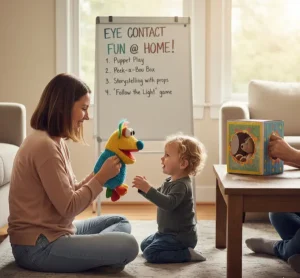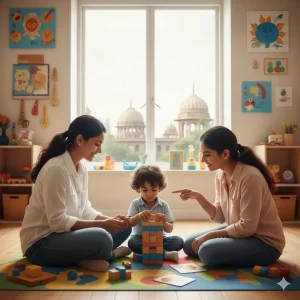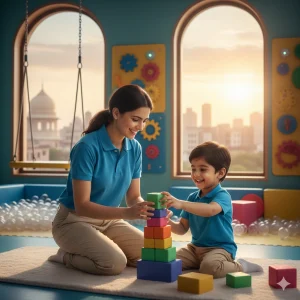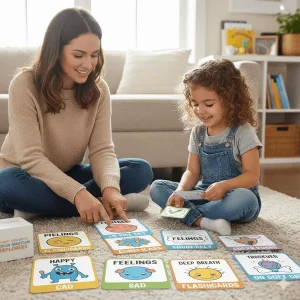What to Expect During a Marriage Counseling Retreat
By Prapoorna M
Last Updated: May 14, 2024
If you’re feeling that the daily grind of life is taking a toll on your relationship, a marriage counseling retreat might be just what you need to reconnect with your partner. Imagine a serene, vacation-like setting where you can escape the chaos of everyday life, gain a deeper understanding of each other, and strengthen your bond.
Marriage counseling retreats aren’t just for couples facing a crisis. They’re designed for anyone who wants to reignite their connection, improve communication, and enjoy a renewed sense of intimacy. Whether you’re struggling to find quality time together or simply want to enrich your relationship, a retreat can offer the space and guidance you need.
Overview of Marriage Counseling Retreats
A marriage counseling retreat is a unique combination of vacation and therapy. Often referred to as a couples retreat or couples intensive, it’s designed to offer a therapeutic environment for couples to deepen their connection while enjoying a romantic getaway.
These retreats come in various forms, from large group sessions with 30 to 50 participants to private, tailor-made experiences just for you and your partner. Regardless of the format, the focus remains the same: helping couples reconnect, improve communication, and rediscover intimacy.
Love and Commitment: The Essential Ingredients While a retreat provides a supportive setting and practical guidance, its success hinges on the love and commitment that you and your partner bring. Entering the retreat with an open heart, a willingness to communicate honestly, and a readiness to work together is crucial.
The retreat offers a safe space to:
- Address relationship challenges like communication issues or intimacy problems.
- Learn new skills for effective teamwork, especially after major life changes.
- Grow as individuals and partners, rekindling the spark in your relationship.
Also Read: Save Your Marriage: Is Marriage Counseling Right for You?
Why Attend a Marriage Counseling Retreat?
When daily responsibilities and the stress of life create distance between you and your partner, a marriage counseling retreat can be the perfect opportunity to reconnect and strengthen your relationship. Here’s why couples might consider attending:
- Reconnecting After Years Together: Over time, couples can lose touch with what initially brought them together. A marriage counseling retreat provides a serene environment where you can rediscover each other and rekindle your bond. Imagine walking hand-in-hand on a scenic trail, sharing heartfelt conversations that remind you of your early days together.
- Improving Intimacy and Communication Skills: Communication and intimacy are the cornerstones of any strong relationship. During the retreat, you’ll learn practical communication strategies and intimacy-building exercises. These skills can help you understand each other better and reignite the spark in your relationship.
- Resolving Conflicts in a Safe and Supportive Environment: Conflict is inevitable, but how you handle it can make or break a relationship. A retreat offers a safe space where experienced therapists guide you through structured exercises to identify the root of your conflicts, practice empathy, and find healthier ways to resolve disagreements.
- Learning to Work as a Team, Especially After a Life Change Like Having a Baby: Life changes, such as becoming parents, can strain even the strongest relationships. The retreat teaches couples how to support each other as a team, set realistic expectations, and share responsibilities effectively. This teamwork can help you navigate life’s challenges together with confidence.
- Finding New Ways to Grow Together: Growth is crucial for a thriving relationship. The retreat offers a variety of activities and exercises designed to help you discover new ways to grow together, whether it’s setting mutual goals, exploring new interests, or simply finding joy in each other’s company.
Know more: Strengthen Your Marriage: 8 Easy Tips for Couples
Common Goals and Expectations
Marriage counseling retreats provide a supportive environment where couples can work toward common goals. Here are some of the typical goals and expectations that couples have when attending:
Deepening Emotional Connection Couples often attend retreats seeking to reconnect emotionally. Structured exercises and guided therapy sessions can help couples better understand each other’s needs, fostering empathy and compassion. You’ll have the opportunity to rediscover what drew you together in the first place and build a stronger foundation for the future.
Enhancing Intimacy and Sexual Desire Intimacy can wane over time, especially when life gets hectic. Marriage retreats often include exercises that help couples reignite their sexual desire, explore each other’s love languages, and create an environment where intimacy thrives.
Building Effective Communication Strategies Communication is key to any successful relationship, but many couples struggle with it. Retreats offer practical tools and techniques to improve communication. You’ll learn how to actively listen, express your feelings clearly, and resolve disagreements in a respectful manner.
Learning Conflict Resolution Skills Conflicts are a natural part of any relationship, but they can cause significant strain if not handled well. At the retreat, you’ll learn conflict resolution skills like expressing your feelings without blaming, listening without interrupting, and finding win-win solutions that benefit both partners.
Variety of Retreat Types Marriage counseling retreats aren’t one-size-fits-all. Here are a few types available:
- Intimacy-Focused Retreats:
- Emphasize emotional and physical intimacy.
- Suitable for couples seeking to deepen their connection and improve their sex life.
- Communication-Centered Retreats:
- Focus on building communication skills and understanding.
- Ideal for couples facing communication challenges.
- Problem-Specific Retreats:
- Tailored to address specific issues like post-affair recovery, financial stress, or parenting.
- Provide specialized therapy and strategies to tackle particular challenges.
- Pre-Marital or Newlywed Retreats:
- Prepare couples for a strong start to their marriage.
- Teach foundational skills like teamwork, financial planning, and conflict resolution.
- Group vs. Private Retreats:
- Group Retreats: Allow couples to share experiences with others, offering camaraderie and mutual support.
- Private Retreats: Provide a more intimate setting tailored to individual couples.
Read more: Emotional Intelligence in Relationships: Why It Matters and How to Improve It
Types of Marriage Counseling Retreats
| Retreat Type | Focus Area | Suitable For |
|---|---|---|
| Intimacy-Focused Retreats | Emotional and Physical Intimacy | Couples seeking to deepen their emotional and physical intimacy. |
| Communication-Centered Retreats | Communication Skills | Couples facing communication challenges. |
| Problem-Specific Retreats | Issue-Specific (e.g., Post-Affair Recovery, Financial Stress, Parenting) | Couples with specific challenges like infidelity or financial stress. |
| Pre-Marital/Newlywed Retreats | Teamwork, Financial Planning | Newly engaged or married couples looking to build a strong foundation. |
| Group Retreats | Group Sharing | Couples seeking camaraderie and mutual support from other couples. |
| Private Retreats | Personalized Focus | Couples prefer a private, personalized experience. |
What to Expect During a Marriage Counseling Retreat
Marriage counseling retreats offer a blend of therapy, relaxation, and fun activities designed to help couples reconnect and grow. Here’s a closer look at what to expect:
Pre-Retreat Assessment:
- Warm-Up Session:
- You’ll begin with a warm-up session where the facilitator will conduct a structured interview to understand your relationship and set personalized goals.
- Expect discussions about the challenges you’re facing, your expectations for the retreat, and how the structure of the retreat can best address your needs.
Explore more on our article The Pre-Marital Questions You Should Ask | How Can I Choose my life Partner?
Activities and Exercises:
- Guided Exercises:
- Engage in guided exercises designed to boost communication, intimacy, and teamwork.
- Exercises could include discovering each other’s love languages, writing appreciation letters, and teamwork-building games.
- Role-Playing:
- Role-playing scenarios help you explore and resolve conflicts in a supportive setting.
- Learn practical skills for managing disagreements, expressing emotions constructively, and understanding your partner’s perspective.
- Fun Bonding Activities:
- Bonding activities may include hiking, yoga, massages, or exploring nature together.
- These activities aim to create a relaxing atmosphere for couples to connect outside of therapy sessions.
Group Sessions:
- Sharing Insights:
- Group sessions offer opportunities to share insights with other couples and learn from their experiences.
- Listening to others’ stories can help you feel less alone in your challenges.
- Open Discussions:
- The group setting provides a safe space to discuss relationship challenges openly and receive constructive feedback.
- You’ll discover that many couples face similar issues and that supportive discussions can lead to breakthroughs.
Individual Therapy Sessions:
- Private Counseling:
- Private counseling sessions are tailored to your unique needs as a couple.
- Therapists provide focused attention to help you address specific challenges, build on your strengths, and find practical solutions.
Leisure Time:
- Relaxation and Reflection:
- In addition to therapy and activities, you’ll have time to relax, reflect, and enjoy recreational activities with your partner.
- Whether it’s a quiet stroll by the beach or a romantic dinner, this leisure time is crucial for deepening your bond.
Benefits of Marriage Counseling Retreats
Attending a marriage counseling retreat offers couples the chance to reconnect and strengthen their relationship in a supportive environment. Here are some of the key benefits you can expect:
Deep Connection:
- A retreat provides a rare opportunity to rediscover each other without the distractions of daily life.
- With the guidance of skilled therapists and structured exercises, couples can explore their emotional needs, rebuild intimacy, and reconnect on a deeper level.
Tailored Counseling:
- Personalized therapy sessions help address specific relationship challenges.
- Whether it’s communication issues, intimacy problems, or lingering conflicts, therapists tailor the sessions to meet your unique needs and goals.
- You receive focused attention, allowing for more effective and meaningful progress.
Learning New Skills:
- Retreats are designed to equip couples with practical skills they can use long after the retreat ends.
- Communication skills like active listening and expressing needs clearly, conflict resolution strategies, and intimacy-building techniques can strengthen your bond and prevent future misunderstandings.
Supportive Community:
- Meeting other couples facing similar challenges can be comforting and enlightening.
- Group sessions offer a supportive environment where you can share experiences, gain insights, and receive valuable feedback.
- Listening to others’ stories helps you realize that you’re not alone and that every relationship has its ups and downs.
How to Prepare for a Successful Marriage Counseling Retreat
Preparing for a marriage counseling retreat requires thoughtful planning to ensure a meaningful and productive experience. Here’s a step-by-step guide to help you make the most of your retreat:
Set Clear Goals:
- Discuss Your Objectives:
- Sit down with your partner and talk about what you both hope to achieve during the retreat.
- Whether it’s improving communication, resolving lingering conflicts, or deepening intimacy, ensure you’re on the same page about your goals.
- Identify Growth Areas:
- Pinpoint specific areas where you’d like to grow as a couple.
- This could include enhancing teamwork, rekindling romance, or learning new conflict resolution strategies.
Choose the Right Retreat:
- Align with Your Goals:
- Pick a retreat that aligns with your goals, interests, and budget.
- For instance, if you’re looking to deepen intimacy, consider an intimacy-focused retreat. If communication is a concern, choose one centered around communication skills.
- Private vs. Group Setting:
- Decide whether you’d prefer a private retreat or a group setting.
- Group retreats offer shared experiences and camaraderie, while private retreats provide a more personalized approach.
Address Concerns:
- Discuss Worries:
- Share any concerns or worries you might have with your partner before the retreat.
- Whether it’s about being open in group sessions or potential conflicts, address these anxieties together.
- Conflict Management Plan:
- Plan how you’ll handle any conflicts that may arise during the retreat.
- Establish a safe word or signal to indicate when a time-out is needed.
Work with a Therapist:
- Pre-Retreat Session:
- Schedule a pre-retreat session with a therapist to help establish clear goals.
- The therapist can guide you in identifying potential challenges and setting realistic expectations.
Conclusion
Marriage counseling retreats offer couples a special chance to reconnect and strengthen their relationships. With tailored therapy sessions, practical activities, and leisure time, these retreats can help you rebuild intimacy, improve communication, and learn valuable conflict resolution skills. By choosing the right retreat, you can transform your relationship, whether you want to reignite the spark, solve longstanding issues, or grow together.
If you’re looking for advice on relationship health, Wellness Hub is a trusted resource. Our articles like Types of Marriage Counseling and How to Handle Communication Issues in Your Marriage offer practical tips to help you and your partner build a stronger connection. For more information and resources, visit Wellness Hub.
Frequently Asked Questions:
1. What should I expect at a marriage counseling retreat?
Expect a blend of therapy sessions, fun activities, and relaxation time designed to help you reconnect with your partner. You’ll participate in group or private counseling sessions, learn new communication skills, and enjoy bonding activities like hiking, yoga, or massages.
2. How long does a marriage counseling retreat usually last?
Most marriage counseling retreats last from a weekend to a week. Some retreats offer day-long or multi-weekend programs, so you can choose one that best fits your schedule and needs.
3. What are the benefits of attending a marriage counseling retreat?
A retreat offers a supportive environment where you can deepen your connection, resolve conflicts, improve communication, and learn valuable skills. You’ll also meet other couples facing similar challenges and gain insights from their experiences.
4. How do I choose the right marriage counseling retreat for us?
Consider your goals, budget, and preferences. Decide if you’d like a private retreat or a group setting, and pick a retreat that aligns with your goals, whether it’s improving communication, intimacy, or teamwork.
5. How do we prepare for a marriage counseling retreat?
Discuss your goals with your partner, identify growth areas, and address any concerns. Plan how you’ll handle conflicts and consider scheduling a pre-retreat session with a therapist to establish clear goals.
6. What topics are covered in a marriage counseling retreat?
Topics typically include communication skills, intimacy, conflict resolution, and teamwork. Some retreats focus on specific issues like post-affair recovery, parenting challenges, or pre-marital counseling.
7. Are marriage counseling retreats effective for couples?
Yes, they can be highly effective, especially when combined with regular therapy. The focused, supportive environment helps couples reconnect, learn new skills, and find practical solutions to their challenges.
8. Do marriage counseling retreats involve group or private sessions?
It depends on the retreat. Some offer group sessions where you can share insights with other couples, while others provide private therapy sessions tailored to your needs.
9. Is a marriage counseling retreat suitable for couples in crisis?
While retreats can help with various challenges, they may not be suitable for couples in crisis or facing abuse. In such cases, seeking individual or couples therapy before attending a retreat is recommended.
10. How do marriage counseling retreats differ from regular couples therapy?
Marriage counseling retreats provide an intensive and immersive environment, often blending vacation-like activities with therapy. Regular couples therapy usually involves weekly or bi-weekly sessions over a longer period. Retreats are more focused and can offer quicker progress, while couples therapy provides ongoing support for sustained improvement.
About the Author:
Prapoorna Mangalampalli
M.Sc., M.A., (Dual Masters in Psychology & English) – Counselor (6+ years of experience)
Prapoorna armed with a passionate dedication fueled by dual Master’s degrees in Psychology and English, Prapoorna sheds light on and elevates human experiences. Over 6+ years of experience fuel her insightful approach to counseling, offering profound empathy and guidance across diverse areas like online, marital, relationship, child, family, and career counseling.
At Wellness Hub, she thrives in a team environment that values innovation, compassion, and achieving results for their clients.
Connect with Prapoorna to learn how she can help you or your loved one find their voice and build a brighter future.
Book your Free Consultation Today
Parent/Caregiver Info:
Client’s Details:
* Error Message









